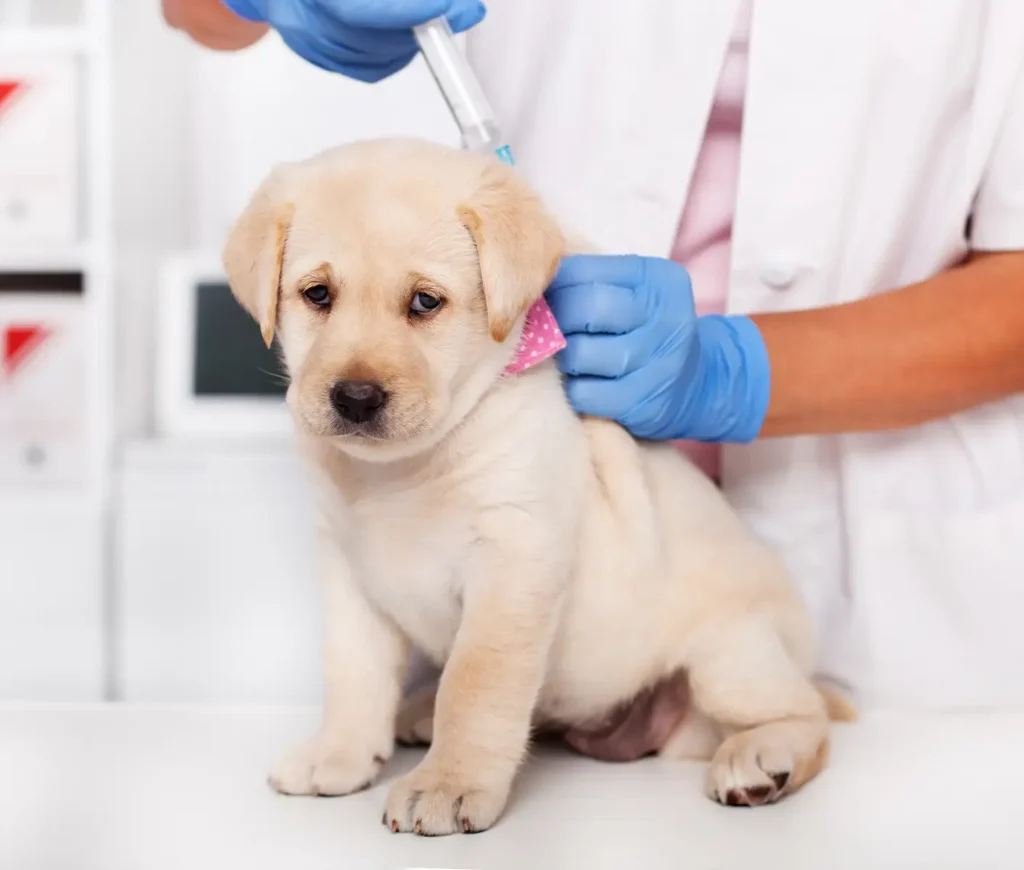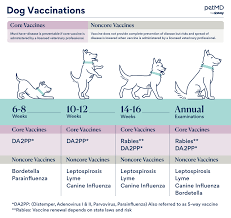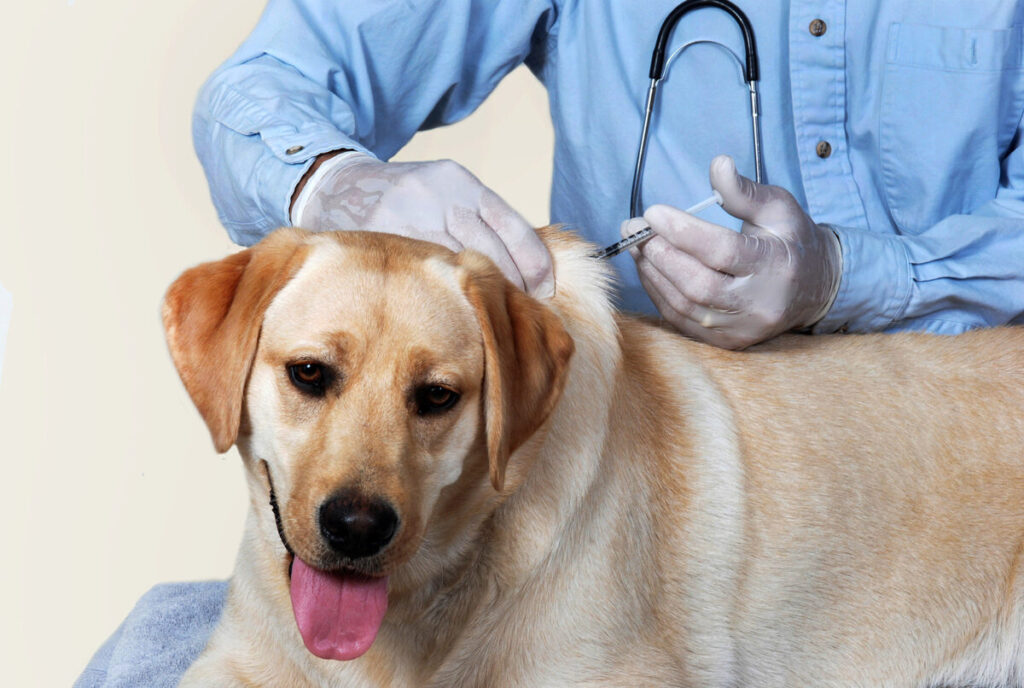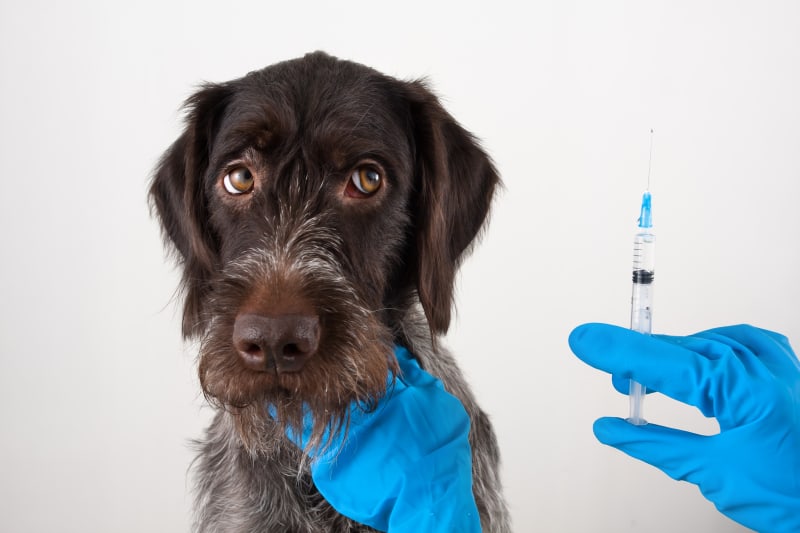Essential Guide to the Vaccination Schedule for Puppies and Adult Dogs
“An ounce of prevention is worth a pound of cure.” This timeless wisdom from Benjamin Franklin holds especially true when it comes to the health and well-being of our furry companions. Ensuring that your puppy or adult dog is up-to-date with their vaccinations is a critical step in safeguarding their health and preventing a host of potentially deadly diseases. According to the American Veterinary Medical Association (AVMA), timely vaccinations can prevent more than a dozen serious illnesses in dogs, emphasizing the importance of adhering to a recommended vaccination schedule.
Why Vaccinations Are Crucial for Dogs
Vaccinations play a pivotal role in preventing contagious and often life-threatening diseases in dogs. They work by stimulating the dog’s immune system to recognize and combat specific pathogens if they are encountered in the future. This preemptive strike is essential in preventing the spread of diseases not only among dogs but also from dogs to humans, in cases of zoonotic diseases like rabies.

Core Vaccines
Core vaccines are those that every dog should receive, regardless of their lifestyle or geographic location. These include:
- Rabies: A fatal disease that affects the central nervous system and can be transmitted to humans. Legally required in most areas.
- Distemper: A highly contagious virus that affects the respiratory, gastrointestinal, and central nervous systems.
- Parvovirus: A severe and often deadly virus that causes gastrointestinal illness in puppies and dogs.
- Adenovirus (Canine Hepatitis): Causes liver disease and can be fatal.
Non-Core Vaccines
Non-core vaccines are given based on the dog’s risk of exposure, which can depend on their lifestyle, environment, and specific health concerns. These include:
- Bordetella bronchiseptica: Causes kennel cough, a highly contagious respiratory disease.
- Leptospirosis: A bacterial infection that can affect both dogs and humans, leading to severe kidney or liver disease.
- Lyme Disease: Transmitted by ticks and can cause lameness, kidney disease, and neurological issues.
- Canine Influenza: A contagious respiratory virus similar to the human flu.
Puppy Vaccination Schedule
Puppies are especially vulnerable to diseases because their immune systems are still developing. Here’s a typical vaccination schedule recommended by veterinarians:

- 6-8 Weeks:
- Distemper, Parvovirus (often combined with adenovirus and parainfluenza)
- 10-12 Weeks:
- DHPP (Distemper, Hepatitis, Parvovirus, Parainfluenza)
- Optional: Bordetella
- 14-16 Weeks:
- DHPP
- Rabies
- 12-16 Months:
- DHPP (booster)
- Rabies (booster)
This schedule ensures that puppies receive adequate protection as their immune systems mature.
Adult Dog Vaccination Schedule
Adult dogs require booster shots to maintain immunity. The frequency of these boosters can vary based on the vaccine and the dog’s health:

- Every 1-3 Years:
- DHPP
- Rabies
- Annually or as Needed:
- Bordetella
- Leptospirosis
- Lyme Disease
- Canine Influenza
Addressing Common Concerns
Vaccine Safety
Some dog owners worry about the safety and side effects of vaccines. While vaccines can cause mild reactions such as soreness at the injection site, fever, or lethargy, severe reactions are rare. The benefits of preventing deadly diseases far outweigh the minimal risks associated with vaccination. Always consult your veterinarian if you have concerns about your dog’s vaccinations.

Tailoring Vaccinations to Individual Needs
Not all dogs need every vaccine. Factors such as age, health status, environment, and travel habits should be considered. For instance, a dog that frequently stays in kennels may benefit from the Bordetella vaccine, while a dog that spends a lot of time in tick-infested areas might need the Lyme vaccine. Your veterinarian can help determine the best vaccination plan for your pet.
Conclusion
A well-planned vaccination schedule is vital to your dog’s health, offering protection against a range of potentially fatal diseases. By adhering to recommended vaccine guidelines, you ensure your furry friend leads a long, healthy, and happy life. Remember, regular veterinary check-ups are an opportunity to discuss any concerns and update your dog’s vaccinations as needed.
Ensuring your dog is properly vaccinated is an act of love and responsibility. Stay proactive in your pet’s health, and you’ll be rewarded with many years of loyal companionship.





















